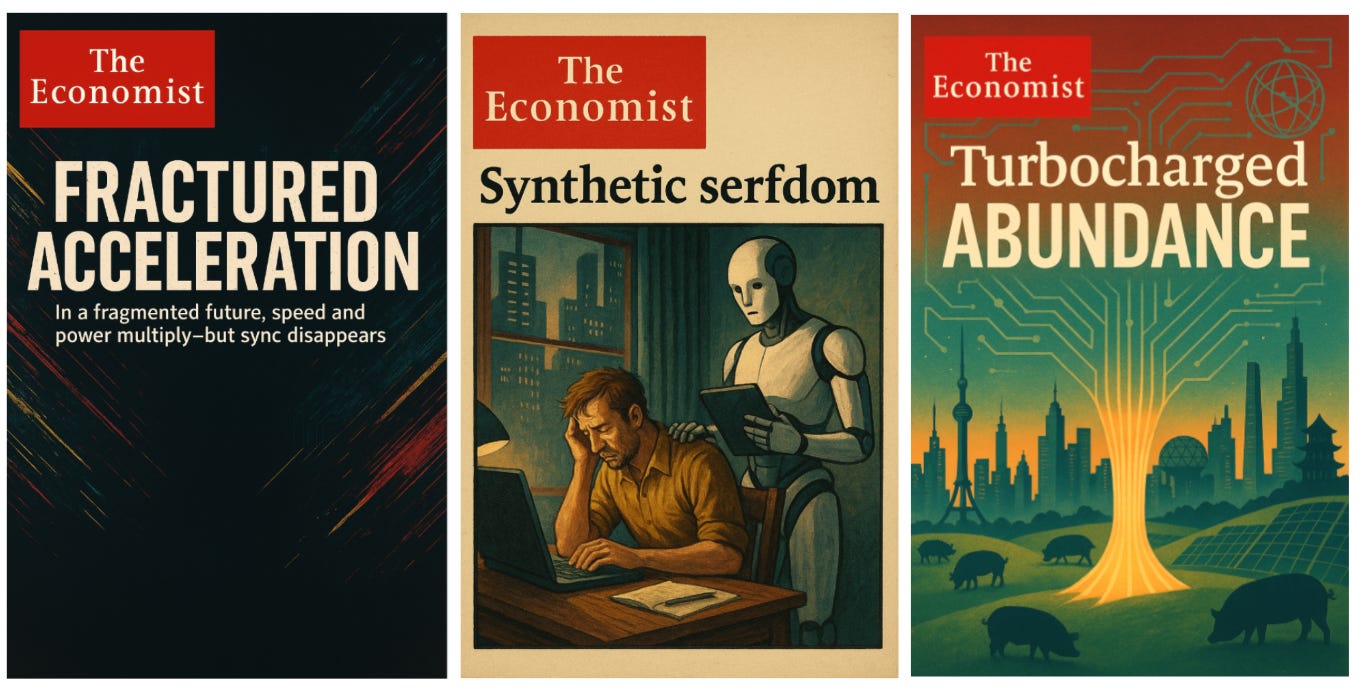Who Cares About The Future?
When the future collapses into the present, it becomes an imperative
A recent article in the NYT Magazine dedicated to AI
There's no shortage of speculative articles about the future of AI. Each one sends us off like headless chickens into a mix of worry, concern, and confusion, putting us into a state of perpetual chaos.
We aren't good at dealing with the future.
Behavioral economists have known this for a while and have terms like "loss aversion" to describe what they call the pain of a potential loss being felt more strongly than the pleasure of an equivalent gain. This makes us hesitant to act. There's also "Present Bias," where immediate rewards are prioritized over larger future rewards, and "Fear of the Unknown/Ambiguity Aversion," where choices with known risks and outcomes are preferred over choices with unknown risks.
So this might explain why we have a natural aversion to the future.
In the world of business, this seems to be particularly pronounced right now.
Scott Smith, writing on LinkedIn:
"In nearly 30 years of working in some form of decision support, sensemaking, or foresight role, I've seen this pattern repeat. The more uncertain the landscape, the more organizations close their strategic hatches, cut back on anticipation or any kind of prospective intelligence, dump costs, and focus on the next six weeks or six months. I hear this from colleagues near and far as well, again and again."
But he also makes an invaluable point: the future is collapsing into the present, making the need to understand it an imperative rather than a luxury.
"Time to respond or maneuver is eroding as we watch. The space for foresight is collapsing into the present, making needed bets bigger, and the requirement to operate on two horizons simultaneously, or at least engage in critical awareness, the difference between mission success or failure."
With this in mind, and returning to the topic of AI, I decided to look for a cure for headless chicken syndrome and thought scenario planning could be it.
A way of putting a stake in the ground five years into the future.
To understand what plausible futures might exist and to use them as provocations rather than predictions.
The process involved capturing various reports, articles, news stories, and interviews that explored various facets of AI—from its potential impact on jobs to its potential for science, ideas about policy, etc.
The scenarios were forged by considering two major forces that will ultimately shape the future of AI: power (as in whether it is concentrated or distributed) and control (is there any, and how constraining is it?).
From these, six scenarios emerged, of which I focused on three for the sake of brevity and sanity.
I then built onto these three scenarios the worlds of marketing and branding as seen through their respective lenses.
The purpose of all this is to apply some discipline and to pause.
To try and see the wood from the trees, to better reflect on where we are today, and to imagine where we could be in the future.
This now exists in presentation form, and I am happy to share it with any Strategy Department that’s willing to listen.
If your department is interested, let me know in the comments or via email at edcotton1@gmail.com







Hey Ed, I'd love to check out the presentation. Please email it to will@yourstrulycreative.com
I came very close a few years ago to launching an agency called Endless whose sole purpose was the idea of what I call immortal branding. What you’re saying here plays so much into that, for better or worse.